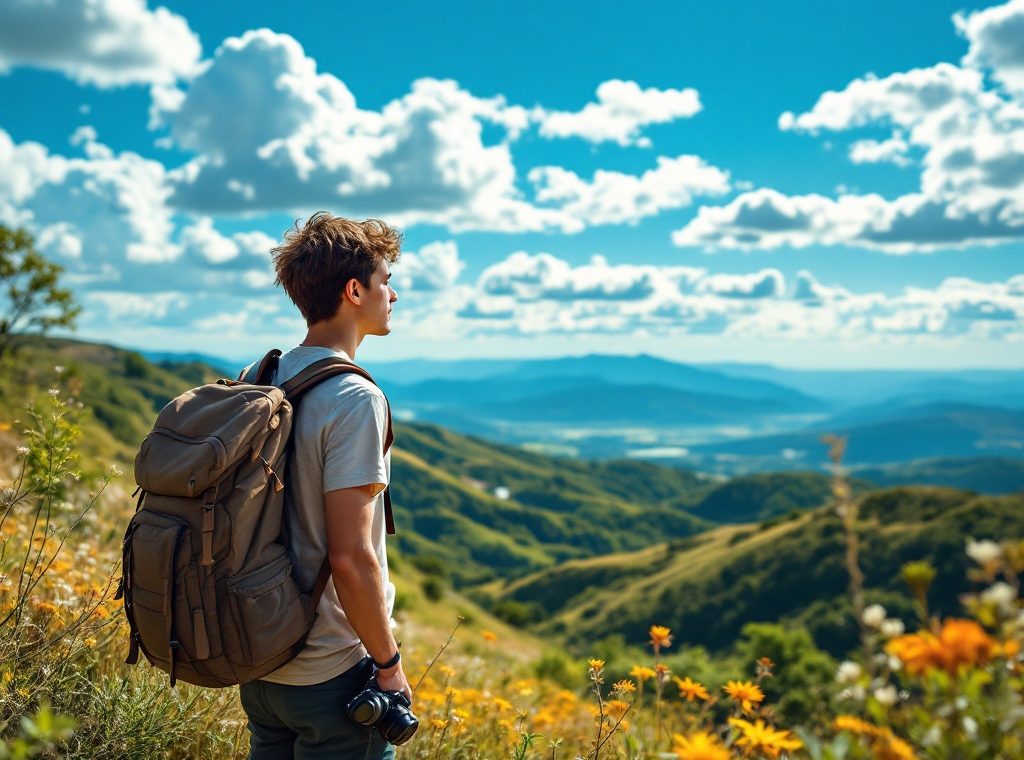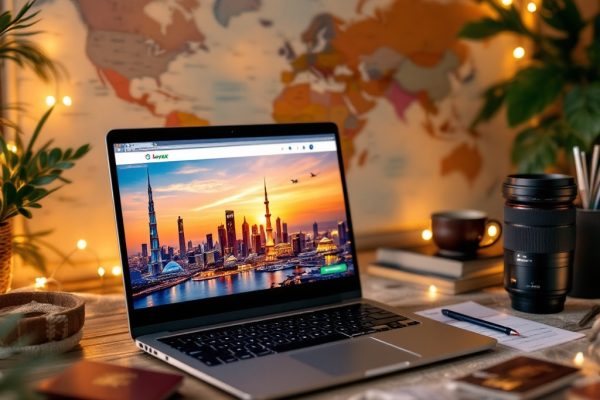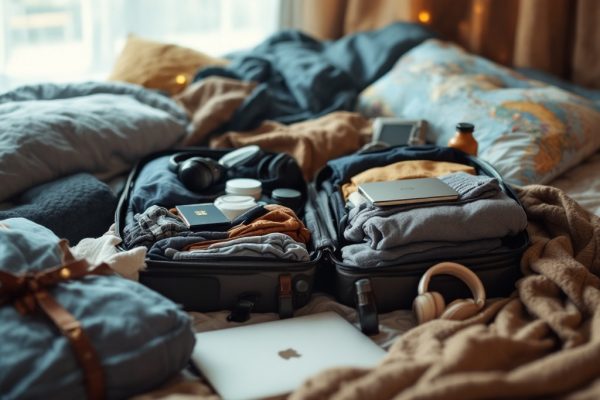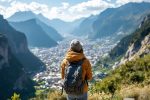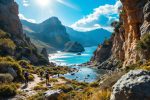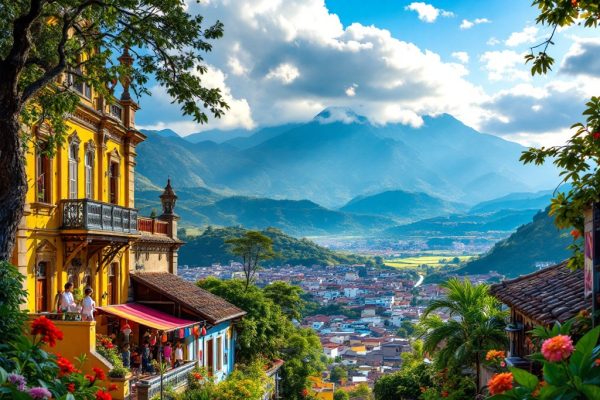Solo Traveling Tips: How to Stay Safe and Have Fun on Your Own Terms
Dream of exploring the world on your terms? Solo travel offers unparalleled freedom to craft personalized adventures and discover yourself along the way. From boosting confidence and adaptability to fostering self-reliance and resilience, embarking on a solo journey is transformative. This comprehensive guide provides practical tips on planning, safety, navigating challenges, and embracing the unique opportunities solo travel presents. Discover how to plan your perfect itinerary, secure accommodations, stay safe, connect with locals, and truly savor the experience. Start planning your solo adventure today!
Important information
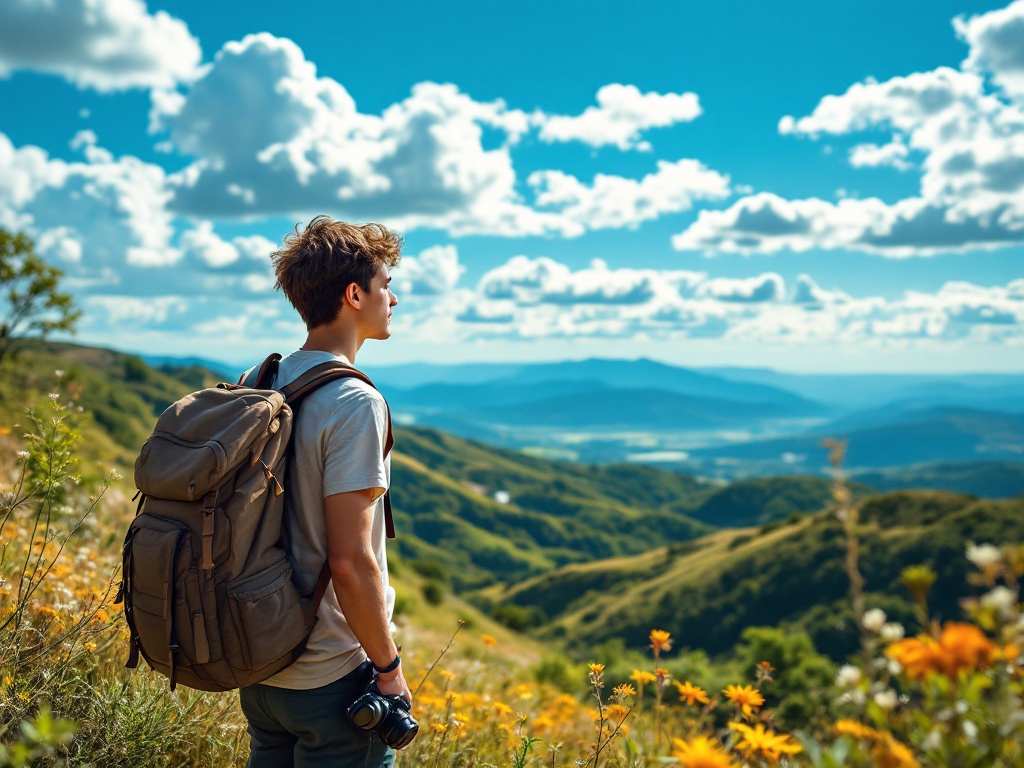
- Solo travel boosts self-confidence, adaptability, and problem-solving skills while encouraging self-discovery and personal growth.
- Plan meticulously: Research visa requirements, local customs, and transportation. Create a flexible itinerary and pre-book accommodations and travel, especially during peak season. Share your itinerary with a trusted contact.
- Prioritize safety: Stay aware of your surroundings, avoid displaying valuables, and trust your instincts. Secure your belongings, moderate alcohol consumption, and inform someone of your whereabouts. Travel insurance is crucial for emergencies.
- Embrace the solo experience: Engage with locals, participate in events, and dine alone to savor the freedom and reflection solo travel offers. Connect with other travelers through hostels, tours, or group activities.
- Pack light for easier mobility, reduced baggage fees, and increased spontaneity. Utilize technology like offline maps and translation apps but also consider tech-free options like guidebooks and journals.
Understanding the Essence of Solo Travel
Traveling solo offers a unique opportunity to create a personalized adventure and explore the world on your own terms. While it can be daunting, independent travel fosters self-discovery and personal growth as you navigate new environments. Making your own decisions, from dining choices to sightseeing destinations, cultivates confidence and adaptability. Solo travel also broadens your horizons, providing a rewarding experience that enhances self-reliance.
What is Solo Travel?
Solo travel is an independent adventure, a journey of self-discovery. It offers a unique opportunity for personal growth, allowing you to engage with the world on your own terms. Traveling solo means you decide the itinerary, the pace, and the experiences you want to pursue. It can be empowering, challenging, and ultimately, deeply rewarding. Embrace the freedom of solo travel and discover a new dimension of yourself and the world around you.
Why Choose to Travel Alone?
Embarking on a solo adventure unlocks unparalleled freedom. You’re the architect of your itinerary, exploring at your own pace and focusing on your passions without compromise. Independent journeys cultivate adaptability and self-reliance, pushing you to navigate unfamiliar situations and fostering personal growth. Embrace these novel experiences to deepen your self-awareness and connect more profoundly with the local culture. Solo travel is a transformative journey of reflection and discovery.
How Solo Travel Encourages Personal Growth
Solo travel is incredibly empowering, offering unique opportunities for self-discovery. Navigating unfamiliar territories alone builds confidence and adaptability. Facing challenges independently strengthens problem-solving skills and resilience. These solo experiences often lead to a deeper self-understanding, revealing your true capabilities. Stepping outside your comfort zone encourages introspection and fosters personal growth. Ultimately, solo travel is transformative. Traveling solo offers several benefits:
- boosts self-confidence and adaptability,
- enhances problem-solving skills and resilience,
- leads to self-discovery and reveals your capabilities,
- encourages introspection and personal growth.
Planning Your Solo Adventure
Planning a solo trip? Research your destination thoroughly, checking visa requirements, local customs, and transportation options. Create a flexible itinerary that balances must-see sights with room for spontaneous adventures. Pre-booking accommodations, travel, and tours is recommended, particularly during peak season. Utilize travel apps and offline resources for navigation, translation, and local insights. Share your itinerary with someone you trust and maintain regular contact.
Finding the Perfect Accommodation
Choosing the right accommodation is crucial for a successful solo trip. Consider factors like safety, cost, and location. Budget travelers may opt for hostels for affordability and social interaction, while guesthouses offer a more private and local experience. Hotels provide amenities and convenience, but often come at a premium price.
- Choose a location near public transport or within walking distance of attractions.
- Prioritize safety measures and read reviews carefully.
- Understand cancellation policies before booking.
Embrace the Flexibility of Solo Travel
A flexible itinerary is essential for solo travel, allowing you to adapt to unexpected situations. Plan key activities but leave room for adjustments due to weather changes, local events, or evolving personal preferences. This flexibility reduces stress and opens up opportunities for serendipitous discoveries. Embrace the unexpected and enjoy the journey.
How to Plan and Navigate Your Trip
Plan your trip meticulously.
Download offline maps and mark important locations like hotels and train stations.
Use these maps along with navigation apps for easy navigation.
Ensure quick access to important documents like your visa and passport.
What to Consider When Booking Accommodations
For solo travelers, accommodation is key. A prime location near transport hubs simplifies getting around.
- Check online reviews thoroughly for valuable insights into safety and comfort.
- Hostels are social hubs, perfect for meeting fellow adventurers.
If privacy is a priority, consider a hotel or guesthouse. Budget also matters, with options ranging from hostels to luxury hotels.
- Careful research will ensure you find the ideal base for your solo journey.
The Importance of a Flexible Itinerary
Experience the thrill of solo travel with a flexible itinerary. This allows you to seize unexpected moments and adapt your plans to your interests, leading to unique and enriching experiences. Spontaneity is key to fully immersing yourself in the journey.
Ensuring Safety While Traveling Alone
Boosting Your Personal Safety
Enhance your safety by staying aware of your surroundings, avoid displaying expensive items and trust your instincts. Inform someone about your itinerary and provide emergency contact information. Familiarize yourself with local customs and regulations, and register with your embassy or consulate. Opt for reputable transportation and accommodations. Refrain from walking alone at night in unfamiliar areas.
Securing Your Possessions
Secure your possessions by using locks on your luggage and hotel room door. Minimize the amount of cash you carry and utilize money belts or hidden pouches. Keep a close eye on your belongings in crowded areas. Travel insurance can provide coverage for lost or stolen items. Maintain digital copies of essential documents.
Staying Vigilant
Be observant of your environment and avoid distractions such as wearing headphones. Pay attention to the people around you. Moderate your alcohol consumption, particularly in unfamiliar locations. Project confidence while walking and stick to well-lit and populated areas. Regularly update a trusted contact about your whereabouts.
Respecting Local Customs
Before embarking on your trip, research local customs and traditions. Dress respectfully and learn a few basic phrases in the local language. Be mindful of religious sites and customs. Don’t hesitate to ask locals for advice and recommendations. Respect local regulations regarding photography.
Importance of Travel Insurance
Travel insurance is crucial, especially for solo travelers. It offers coverage for medical emergencies, lost luggage, and trip cancellations. A comprehensive policy provides peace of mind and essential support. Choose a plan that aligns with your specific needs, considering repatriation and liability coverage.
Essential Safety Precautions for Solo Travelers
For unexpected issues, keep local currency on hand.
Memorize and save emergency contacts like police, fire, and ambulance in your phone.
Be discreet about your itinerary, avoiding publicly sharing hotel details or announcing solo travel.
These precautions will enhance your safety.
How to Keep Your Belongings Secure
Safeguard your valuables with a hidden wallet for enhanced security.
Remain vigilant, particularly in crowded areas where pickpockets may operate.
Before your trip, research your destination and identify secure locations for your belongings, such as hotel safes.
Consider leaving non-essential valuables at home to minimize risk.
How to Stay Aware of Your Surroundings
Stay aware of your surroundings and pack light to maintain mobility. projecting confidence deters potential threats. For instance, awareness helps you spot dangers, while overpacking hinders your movement and makes you a target.
Traveling light and staying alert enhances your safety. Confident body language can also discourage unwanted attention.
Understanding Local Customs and Cultural Norms
Respecting local customs is key to avoiding unintentional offense. Learning simple greetings like “hello” and “thank you” demonstrates a willingness to engage with the local culture. Appropriate attire and dining etiquette further show respect, as does proper behavior at religious sites. Familiarizing yourself with local laws can prevent legal issues. For valuable insights, consult guidebooks, cultural exchange websites, or local tourism offices. Here’s how you can show respect:
- Learn basic greetings: simple phrases like “hello” and “thank you” go a long way.
- Dress appropriately: research local customs regarding attire to avoid causing offense.
- Respect dining etiquette: be mindful of table manners and local dining traditions.
- Behave respectfully at religious sites: dress modestly and follow any specific guidelines.
- Familiarize yourself with local laws: understanding local regulations can prevent legal trouble.
For more information, consult these resources:
- Guidebooks: these offer valuable insights into local customs and etiquette.
- Cultural exchange websites: connect with locals and learn firsthand about cultural nuances.
- Local tourism offices: they can provide up-to-date information on local customs and laws.
The Role of Travel Insurance in Solo Travel
Traveling alone? Travel insurance is essential for financial protection against unforeseen circumstances like medical emergencies, lost luggage, or trip cancellations. It offers peace of mind, allowing you to explore confidently knowing support and resources are available. For example, if you become ill overseas, your insurance can handle medical costs and assist with issues like lost baggage or flight disruptions. Be prepared and get insured for a worry-free trip.
Practical Tips for Solo Travelers
Pack light to streamline your travel experience and potentially reduce baggage fees.
Utilize helpful tech tools like navigation apps and translation software to simplify your trip.
Be prepared for unexpected situations by packing a first-aid kit, essential medications, and copies of important documents.
Share your itinerary with a trusted contact and maintain regular communication throughout your trip.
Prioritize safety and enjoy your travels.
Why You Should Pack Light
Traveling light offers numerous benefits. It enhances mobility and adaptability, simplifying plan changes and navigation through bustling airports and crowded public transit. Imagine effortlessly carrying a single small bag, significantly reducing physical strain and making exploration more enjoyable. You can appreciate the scenery, not a sore back. Fewer bags also minimize the risk of lost luggage, a potential trip ruiner. Moreover, packing light often translates to lower baggage fees, freeing up funds for memorable experiences like a special meal. Finally, it encourages a more spontaneous travel style, allowing greater flexibility and freedom to embrace the unexpected.
- Enhanced mobility and adaptability, simplifying plan changes and navigation through busy areas.
- Reduced physical strain, making exploration more enjoyable.
- Minimized risk of lost luggage.
- Lower baggage fees, freeing up funds for memorable experiences.
- More spontaneous travel style, allowing greater flexibility and freedom.
Pack light, travel happy.
How to Use Technology and Offline Tools
- For internet-free navigation, download offline maps.
- A local SIM card is a budget-friendly way to stay connected.
- Translation apps simplify communication, but a physical journal and guidebooks offer valuable tech-free alternatives.
The Importance of Emergency Preparedness
A mini first-aid kit is essential for treating minor injuries. Pack bandages, antiseptic wipes, and pain relievers. Knowing emergency numbers is also vital. Save local emergency services and your embassy’s number in your phone, and keep a physical copy as a backup.
How to Stay Connected with Loved Ones
Stay connected while traveling with these options:
- Local SIM card: an affordable way to stay connected.
- International roaming: convenient but can be expensive.
- Free Wi-Fi: widely available at cafes, hotels, and libraries.
Share your adventures using messaging apps and social media. Don’t forget a portable charger to keep your devices powered up. Regular check-in times will keep your loved ones informed.
Overcoming Challenges of Solo Travel
Solo travel offers exciting adventures, but pre-trip anxiety is normal. Thorough research is key to a smooth experience. Understand your destination, plan transportation and accommodation, and create a detailed itinerary. Practice mindfulness techniques like deep breathing and meditation to ease pre-trip jitters. Connect with other solo travelers online to exchange tips and experiences.Loneliness can be a challenge when traveling solo, but engaging with locals is crucial. Join a workshop, attend local events, or strike up conversations with fellow travelers. Hostels, tours, and group activities are great ways to meet new people. Staying connected with loved ones through video calls or social media can also help combat loneliness. Solo travel offers valuable time for self-reflection, and journaling can be a powerful tool for personal growth.Projecting confidence is essential for solo travelers. Walk with purpose, make eye contact, and learn basic local phrases. Dress comfortably and respectfully, researching local customs beforehand. Understanding dining etiquette can be incredibly helpful. Trust your instincts. If a situation feels unsafe, remove yourself.
How to Manage Travel Anxiety
Planning a relaxing trip requires careful preparation. Research your destination thoroughly and book accommodations in safe neighborhoods. Practice relaxation techniques like deep breathing and meditation before and during your trip. If you’re feeling overwhelmed, start with shorter trips to gain confidence. Maintain a positive mindset and focus on the excitement of travel to reduce anxiety.
Research your destination and choose safe accommodations. Thoroughly research your destination, focusing on safe neighborhoods for your accommodations. This will contribute significantly to your peace of mind.
Practice relaxation techniques. Incorporate relaxation techniques, such as deep breathing and meditation, into your routine both before and during your trip.
Start with shorter trips. If the prospect of travel feels overwhelming, begin with shorter trips to gradually build your confidence.
Maintain a positive mindset. Cultivate a positive mindset, focusing on the excitement and enjoyment of travel. This can significantly reduce anxiety and enhance your overall experience.
Strategies to Ease Loneliness
Embrace your adventurous side and explore your surroundings by joining group tours or engaging with locals through meetups. Stay connected with loved ones back home by sharing your experiences online and keeping a travel journal. Unleash your inner artist through photography, sketching, or any other creative pursuit that sparks your interest. Take advantage of free walking tours to discover hidden gems, but also remember to cherish quiet moments of reflection and enjoy your own company.
How to Act Confident in Public
Projecting confidence can significantly impact your safety. Direct eye contact, a purposeful stride, and upright posture exude assurance and may deter unwanted attention. Connecting with those around you, whether locals or fellow travelers, also fosters a sense of security. A simple greeting or question can establish rapport and make you feel more comfortable and less vulnerable. Staying occupied also helps. Reading a book, listening to music, or consulting a map discourages unwanted interactions. Should you ever feel unsafe, trust your instincts. Immediately relocate to a more public area and don’t hesitate to seek assistance from locals or other travelers. Here’s how you can enhance your safety by projecting confidence:
Posture and Eye Contact. Maintain direct eye contact, walk with a purposeful stride, and keep an upright posture to project confidence and deter unwanted attention.
Connect with Others. Engage with those around you, whether they are locals or fellow travelers, to build a sense of community and security. A simple greeting or question can go a long way in making you feel more at ease.
Stay Occupied. Keep yourself engaged in activities like reading, listening to music, or consulting a map to discourage unwanted interactions.
Trust Your Instincts. If you ever feel unsafe, trust your gut feeling. Immediately move to a more public area and don’t hesitate to seek help from locals or other travelers.
Enhancing Your Solo Travel Experience
Immerse yourself in the local culture by connecting with residents and attending community events. Savor the regional cuisine and perhaps even try a language class.
Embrace solo adventures: visit museums, explore nature, or attend a concert. These experiences not only build confidence and self-reliance but also offer unique perspectives. Dining alone, for example, allows you to enjoy your own company, reflect on your journey, and choose exactly what and when you want to eat.
Traveling offers numerous opportunities to meet new people. Consider staying in hostels, joining group tours, or participating in activities like hiking or cooking classes.
How to Mingle with Locals
Connect with locals to truly immerse yourself in the culture. Ask residents for directions and insider tips. Attend community events and festivals to experience the local scene. Join local tours or workshops to explore specific interests. Stay in hostels and guesthouses to meet locals and other travelers. Dine at local restaurants and explore markets to chat with vendors and residents. Learn basic local phrases to show respect and start conversations, enriching your travel experience.
Ways to Meet New People on the Road
- Hostels are fantastic hubs for meeting fellow adventurers.
- Group tours, especially those tailored to interests like hiking or cooking, provide another avenue for connection.
- Immerse yourself in the local scene by attending festivals and workshops for a unique cultural experience and opportunities to forge new friendships.
Embracing Solo Activities and Building Confidence
Traveling alone can boost your confidence for more ambitious adventures. Try exploring museums, enjoying regional cuisine, or participating in a local workshop. These solo experiences teach you the valuable skill of enjoying your own company, fostering self-reliance, and empowering you to navigate unfamiliar situations. Embrace this liberating freedom – it’s truly transformative. Some other benefits of solo travel include: discovering your own pace, stepping outside your comfort zone, and meeting new people.
Benefits of Dining Alone and Enjoying Your Own Company
Enjoy a meal at your own rhythm. Savor each bite and appreciate the quiet reflection that dining alone provides. It’s an opportunity for self-discovery and a chance to relish your own company. You’re in complete control: you choose the food and set the pace. No compromises needed. Embrace this moment of peace, connect with yourself, and enjoy the solitude.

